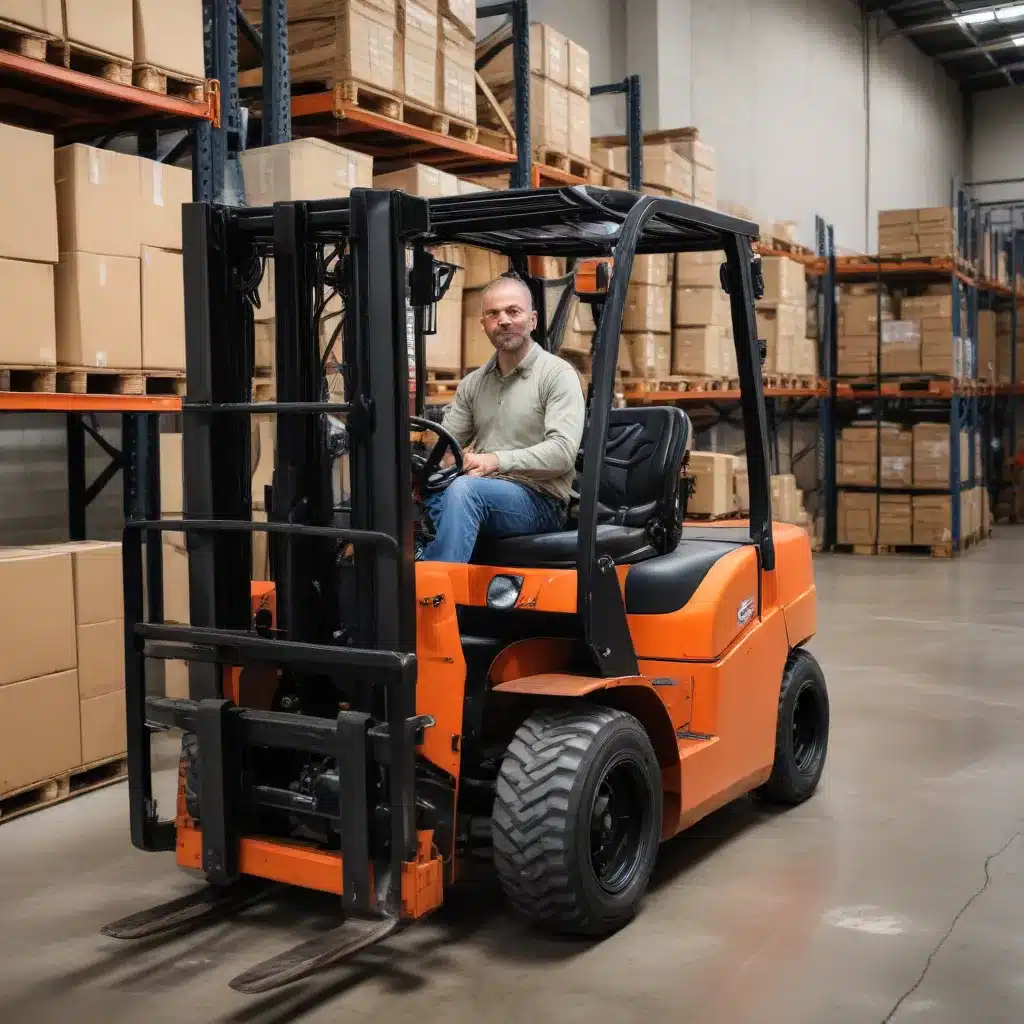
The Vital Role of Forklift Upkeep in Building Resilient Supply Chains
In today’s dynamic global market, supply chain resilience has become a critical imperative for businesses seeking to navigate uncertain and challenging times. As the backbone of warehousing and logistics operations, forklifts play a pivotal role in maintaining the integrity and continuity of supply chains. Proper forklift maintenance, therefore, is not just a matter of operational efficiency – it is a strategic lever for enhancing the overall resilience and adaptability of an organization’s supply chain.
Forklift Maintenance: The Foundation of Supply Chain Resilience
Forklift reliability is the cornerstone of a resilient supply chain. When forklifts are well-maintained and operating at peak performance, they ensure the smooth flow of goods through warehouses and distribution centers, minimizing the risk of delays, damage, or disruptions. Conversely, poorly maintained forklifts can lead to breakdowns, increased downtime, and costly interruptions that ripple throughout the entire supply chain.
To build a resilient supply chain, businesses must prioritize proactive forklift maintenance strategies that focus on:
-
Preventive Maintenance: Establishing a comprehensive preventive maintenance program that includes regular inspections, scheduled servicing, and timely repairs is crucial. This approach helps identify and address potential issues before they escalate into major problems, reducing the risk of unplanned downtime.
-
Part Availability and Inventory Management: Maintaining an adequate inventory of critical forklift parts and components ensures that replacement and repair needs can be met quickly, minimizing disruptions. Collaboration with suppliers and strategic stockpiling of high-wear parts can enhance supply chain resilience.
-
Operator Training and Safety: Well-trained forklift operators who understand safety protocols and maintenance best practices are less likely to cause accidents or operate equipment in a way that leads to premature wear and tear. Investing in comprehensive operator training programs helps cultivate a safety-first culture and contributes to forklift longevity.
-
Technology Integration: Leveraging technology, such as fleet management systems, sensors, and predictive analytics, can provide real-time insights into forklift performance, maintenance needs, and potential issues. This data-driven approach enables proactive maintenance strategies, optimizing forklift uptime and supply chain resilience.
Building Resilience: Forklift Maintenance in the Context of Supply Chain Management
Forklift maintenance is not just about maintaining individual equipment; it is a critical component of a holistic supply chain resilience strategy. By integrating forklift upkeep into broader supply chain risk management practices, organizations can enhance their ability to anticipate, adapt, and recover from disruptions.
Diversified Sourcing and Supplier Relationships
Maintaining a diverse supplier network for forklift parts and services can mitigate the risk of supply chain disruptions. By cultivating strong relationships with multiple vendors, businesses can ensure the availability of crucial components and minimize the impact of any single-source failures.
Flexible Logistics and Transportation
Resilient supply chains require the ability to adapt quickly to changing conditions. Forklift maintenance plays a vital role in enabling flexible logistics operations. Well-maintained forklifts can handle increased throughput, adapt to alternate transportation modes, and support agile warehouse layouts when faced with disruptions.
Robust IT Systems and Data Integration
Leveraging advanced technologies, such as fleet management software and predictive analytics, provides the visibility and data-driven insights needed to anticipate and respond to forklift-related supply chain risks. Integrated IT systems facilitate real-time monitoring, proactive maintenance scheduling, and data-driven decision-making.
Risk Management and Continuous Improvement
Embedding forklift maintenance into the overall supply chain risk management framework allows organizations to identify potential vulnerabilities, assess their impact, and implement mitigation strategies. By continuously monitoring forklift performance and incorporating lessons learned, businesses can refine their maintenance practices and enhance the overall resilience of their supply chains.
The Future of Forklift Maintenance and Supply Chain Resilience
As the global economy continues to evolve, the interplay between forklift maintenance and supply chain resilience will become increasingly crucial. Several emerging trends and strategic shifts suggest the direction of this critical relationship:
-
Digitalization and Smart Maintenance: The integration of technologies, such as IoT, predictive analytics, and digital twins, will enable more proactive and data-driven forklift maintenance practices. This, in turn, will support the development of resilient supply chains that can anticipate and adapt to disruptions.
-
Sustainability and Environmental Responsibility: As businesses strive to minimize their environmental impact, sustainable forklift maintenance practices, including the adoption of alternative fuel sources and the implementation of remanufacturing and recycling programs, will become integral to building resilient supply chains.
-
Collaboration and Public-Private Partnerships: The future of supply chain resilience will likely involve closer collaboration between the public and private sectors. Governments and businesses may work together to develop new regulations, investment programs, and infrastructure initiatives that support resilient supply chain initiatives, including forklift maintenance best practices.
-
Talent Development and Training: As supply chains become more complex and technology-driven, the importance of a skilled and adaptable workforce will intensify. Businesses must prioritize the development of forklift maintenance expertise, fostering a culture of continuous learning and innovation to ensure the long-term resilience of their supply chains.
Conclusion: Embracing Forklift Maintenance for Resilient Supply Chains
In an era of heightened uncertainty and volatility, forklift maintenance has emerged as a crucial pillar of supply chain resilience. By implementing proactive maintenance strategies, diversifying supplier networks, and embracing technological advancements, businesses can build supply chains that are adaptable, responsive, and capable of weathering any storm.
As an experienced industry expert, I encourage all supply chain professionals to prioritize forklift maintenance as a strategic lever for enhancing their organization’s competitive advantage and ensuring the continuity of their operations. By recognizing the symbiotic relationship between forklift upkeep and supply chain resilience, businesses can position themselves for long-term success in the global marketplace.
Remember, a well-maintained forklift fleet is not just a matter of operational efficiency – it is the foundation upon which resilient and adaptable supply chains are built. Embrace this critical insight, and unlock the full potential of your supply chain to thrive in the face of any challenge.

